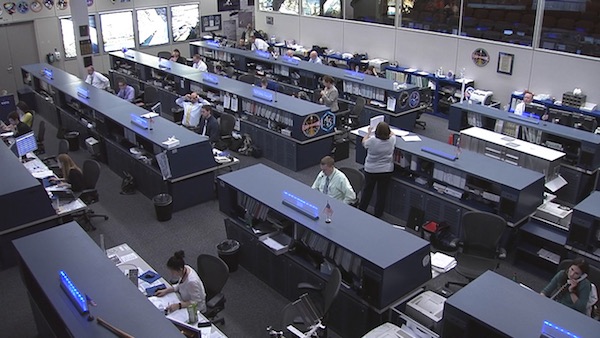Creating a mission control for the commercial spaceflight industryby Greg Anderson
|
| In the Earth-Moon system, there’s no reason to suppose the mission control model won’t be maintained. Doing so will add a layer of safety that will still be extremely useful. |
That will change as we go deeper into space because of the time lag involved in sending and receiving radio transmissions. Delays of a bit more than a second at the Moon, for example, will become many minutes at Mars: too long for Earth to be intimately involved in the flight. Future commanders of deep space missions will have authority and responsibilities that no astronaut or cosmonaut has had to date. It cannot be otherwise.
In the Earth-Moon system, however, there’s no reason to suppose the mission control model won’t be maintained. Doing so will add a layer of safety that will still be extremely useful. Several nations are currently considering lunar and cislunar crewed missions, but so are a few private companies. With early successes, the number of private groups interested will increase, but not all of them will attempt to fly those spacecraft themselves. Some, perhaps most, will contract with operations companies to carry out what they want. With such transactions and capital building, a strong industry will grow.
Many people today, including the NASA leadership, argue for building infrastructure in cislunar space to support operations in space. They cite the need for fuel depots, maintenance sheds, and a human outpost from which to carry out various projects. All of that is true, yet Earth-based infrastructure is also needed.
As long as all of that is government activity, mission controls are already established in various countries. But for a cislunar economy to really develop, private human spaceflight will also need to develop. Will those crews simply be on their own? Obviously not. So, who will control those flights? One solution would be for private companies to contract with one or more of the government centers, but those centers will be busy with their own missions, such as the International Space Station and its future Chinese counterpart. Moreover, the staffs of the government centers, no matter how experienced, will not know the private vehicles inside and out. Private flights in private ships mean private mission control.
Any mission control will be a major undertaking. Private companies are trying to lower their costs by keeping payrolls down and relying on computers and expert software to automatically monitor spacecraft systems. Mission controls are different beasts, however. Both to carry out their functions and to command credibility in case of an emergency, mission controls need a depth and breadth of engineering ability as well as a powerful computer system and resource base. Lives will depend on them.
| Private industry will need to be extremely efficient to extract profits from space operations, especially in the early years. Pooling resources to create an asset for everyone might make strategic sense. |
Individual companies can establish their own mission controls, of course, but a better approach might be for the industry to build a central control system, with each company making a contribution to the new organization. That organization would control all private human vehicles, thus quickly gaining experience and expertise with various spacecraft. At some point, it might make sense for the organization to become a corporation in its own right. That would allow it to enter the capital markets to improve its technology, broaden its services, and maximize its value. Becoming a separate legal entity would likely also simplify its effort to protect any corporate secrets to which it may gain access.
Infrastructure beyond Earth is critical to creating a cislunar economy, which is itself critical to opening the solar system. But infrastructure on Earth is also important. Private industry will need to be extremely efficient to extract profits from space operations, especially in the early years. Pooling resources to create an asset for everyone might make strategic sense.
